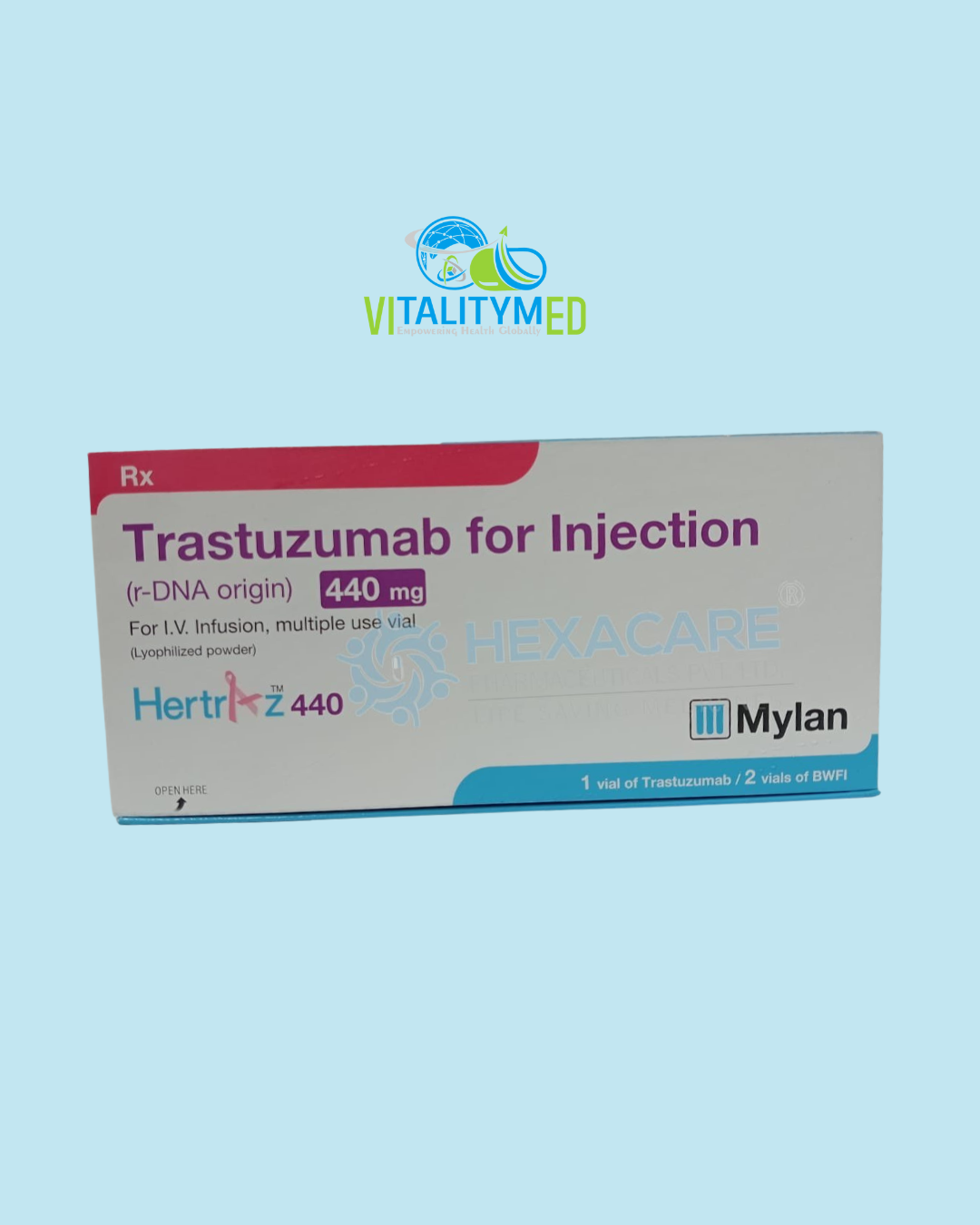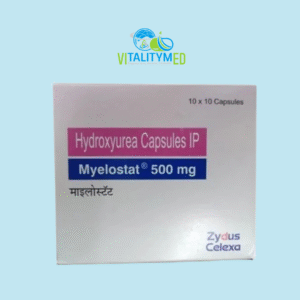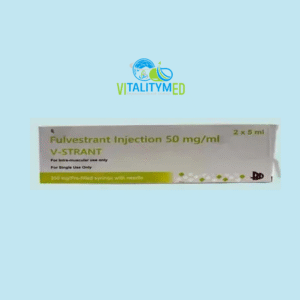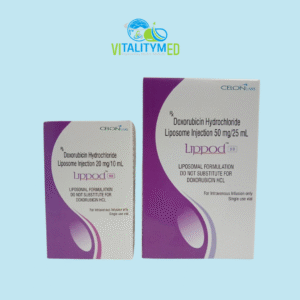Hertraz 440 mg contains Trastuzumab, a humanized monoclonal antibody designed to specifically target cancer cells that overexpress the HER2 receptor.
HER2 (Human Epidermal Growth Factor Receptor 2) is a protein that, when present in high amounts, makes certain cancers grow more aggressively.
Hertraz, administered as an intravenous infusion, has transformed the outlook for patients with HER2-positive breast and gastric cancers, improving survival rates and disease control significantly.
Mechanism of Action
Trastuzumab works through a precise targeted approach:
-
It binds specifically to the HER2 receptor on cancer cell surfaces, blocking the receptor’s function.
-
This prevents the cancer cells from receiving growth signals, thereby slowing or stopping their proliferation.
-
It also triggers the body’s immune system to attack and destroy these cancer cells via antibody-dependent cellular cytotoxicity (ADCC).
By focusing on HER2-positive cells, trastuzumab helps spare most normal tissues, offering an advantage over many conventional chemotherapies.
Uses / Indications
Hertraz is indicated for the treatment of:
-
HER2-positive breast cancer:
-
Early-stage disease (as adjuvant therapy after surgery to reduce recurrence risk).
-
Metastatic breast cancer (alone or combined with chemotherapy for advanced disease).
-
-
HER2-positive metastatic gastric or gastroesophageal junction cancer, in combination with chemotherapy.
Before starting treatment, testing is done on tumour samples to confirm HER2 overexpression, ensuring trastuzumab is the right choice.
Adverse Effects
While trastuzumab has dramatically improved outcomes in HER2-positive cancers, it can also cause side effects that require careful monitoring.
Common side effects include:
-
Infusion-related reactions: chills, fever, nausea, headache, or flushing, often during the first few infusions.
-
Fatigue, diarrhoea, mild rash.
Less common but serious effects:
-
Heart problems (cardiotoxicity): trastuzumab can weaken the heart’s pumping ability (leading to reduced left ventricular ejection fraction or heart failure). This risk is higher if combined with anthracyclines (like doxorubicin). Regular echocardiograms are done to monitor heart function.
-
Lung toxicity (rare): including breathlessness or interstitial lung disease.







